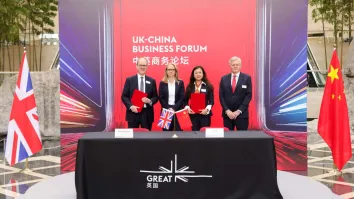
Consumer sentiment dampens retail in China
Economy, prices, and job security are causing Chinese consumers to cut back on spending, particularly on price-sensitive items.
Consumer confidence in China remains low, impacting retail performance across the Asia Pacific region, Savills’ Asia Pacific Retail report revealed.
“Consumer sentiment remains subdued in China and continues to weigh on the region’s retail performance. However, structural problems in China’s domestic economy, combined with its challenging property market, cannot be ignored,” the report noted.
Concerns over the economy, prices, and job security are prompting Chinese consumers to scale back spending, particularly on price-sensitive products.
In response, the government is implementing policies to stimulate domestic consumption, however, their effectiveness remains uncertain amidst economic challenges.
Tier 2 and lower cities in China are expected to struggle, whilst tier-1 cities and tourist hotspots like Hainan may fare better.
Outside China, consumer sentiment varies across the Asia Pacific region, with optimism in India and ASEAN countries contrasting with pessimism in mature markets like South Korea and Japan.
“We anticipate a stronger retail performance in tourist destinations within these markets, bolstered by an influx of either international or domestic tourists,” it noted.
Leasing momentum in retail is being driven by experience-oriented businesses, especially in the food and beverage sector, with cafés and casual dining establishments experiencing rapid expansion.
Athleisure wear and cosmetics retailers are also active, capitalising on increased health and fitness awareness. Multibrand cosmetics stores are reemerging in markets like Seoul and Hong Kong, anticipating a surge in tourist spending.
ALSO READ: Chinese consumers prioritise entertainment and relaxation in retail choices: report
Luxury retailers, on the other hand, are consolidating their store networks and focusing on concept stores and pop-up opportunities. Fashion retailers are also selective in their expansions, particularly in markets like South Korea, Taiwan, and Malaysia.
Additionally, brands are emphasising experiential marketing through pop-ups, exhibitions, and co-branded activities to engage customers. Concept stores are also on the rise, especially among luxury brands, offering immersive shopping experiences beyond product displays.
Retailers are now exploring a wider range of store formats and locations, targeting younger consumer groups and leveraging unconventional spaces to increase social media engagement and online exposure whilst driving physical sales.

















 Advertise
Advertise








